The 10 Best Cannon Films
From Masters of the Universe to Lifeforce, here are the best Cannon films to help wrap your head around the movie group's enduring legacy.

If you were a movie fan in the 1980s, then you have at least a little soft spot for the Cannon Group. Walk through any video store, and you’d be greeted by covers featuring oiled up men, steely ninjas, and so many guns. If you wanted low-quality, instantly satisfying trash, you looked for the Cannon logo.
Although it had been around since the late 1960s, Cannon became Cannon in 1979, when Israeli cousins Menahem Golan and Yoram Globus took over, ushering in a golden age of low-budget, deeply satisfying shlock. Under the cousins’ reign, the Cannon Group pumped out movie after movie, hitting its peak in 1984, when it put out 42 features in one year. So dominant was Cannon that they very nearly produced a Spider-Man movie directed by none other than James Cameron. However, that same hubris drove the cousins to overreach, and after the flop of their big-budget play Superman IV: The Quest for Peace, Golan and Globus left the company in the hands of an Italian conglomerate.
Despite this ignoble end, there’s no denying that Cannon had a good run. To celebrate the awesomeness and audacity of Cannon, here are ten of their best films. While a few of these movies predate the Golan and Globus run, and some were distributed by other companies, they are all Cannon Productions, showcasing the company’s surprising breadth.
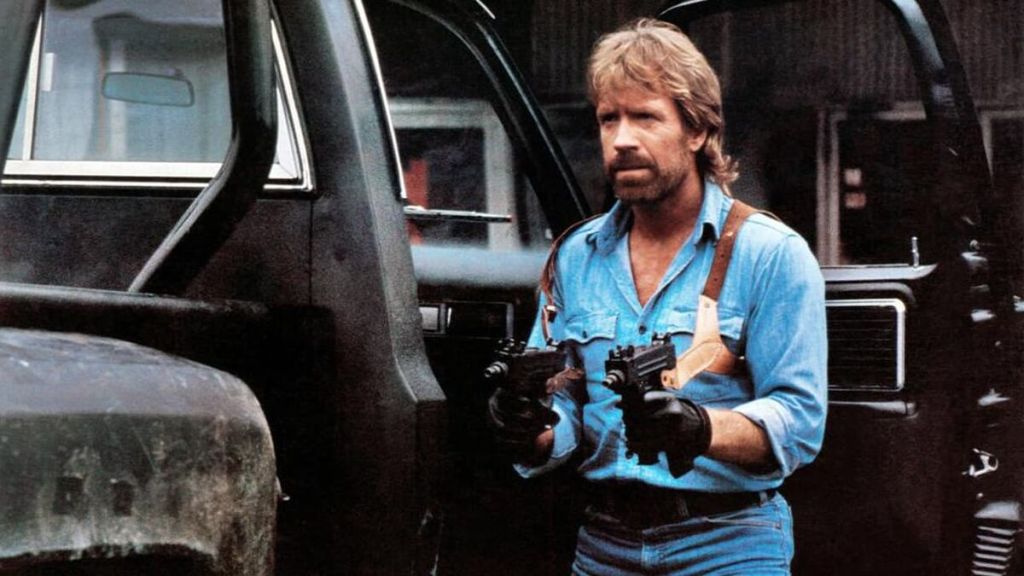
10. Invasion U.S.A. (1985)
Golan and Globus certainly dabbled in Stallone, Van Damme, and Bronson, and they tried to make Michael Dudikoff into a thing. But Cannon’s only true in-house action star was Chuck Norris. Not only did Norris star in Cannon’s Missing in Action and Delta Force franchises, but the company also produced his network television series Walker: Texas Ranger. In fact, few phenomena better illustrate the power of the Cannon approach better than the success of Norris, because if you only know the man from memes or his appearances on Fox News, let me tell you: Chuck Norris is one of the cinema’s most boring screen presences. Yes, he trained with Bruce Lee and even appears in Enter the Dragon, but he made a career out of being almost disdainfully bored on screen.
On that account, Invasion U.S.A. is no different. Norris mumbles his lazy one-liners and can’t be bothered to show a hint of emotion, even when chasing down baddies in his pickup truck. Fortunately, everyone else picks up the slack. The nonsense story by Norris, his younger brother Aaron, and James Bruner features Russian and Cuban terrorists sowing disorder during Christmastime in south Florida, but director Joseph Zito (The Prowler, Friday the 13th: The Final Chapter) brings some genuine mean-spirited wit. Not even Norris’s blasé performance can diminish the glee of watching terrorists blow up Christmas-light-lined houses in a peaceful suburb. Even better, Rambo’s Richard Lynch shows up as the bonkers villain, a delightful bit of scenery chewing that easily steals the spotlight from the movie’s disinterested star.
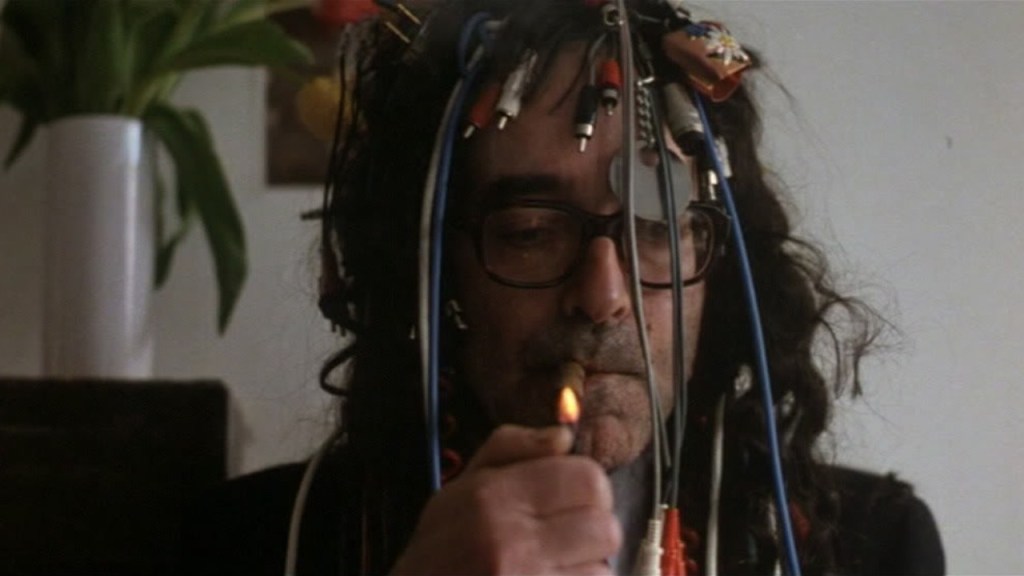
9. King Lear (1987)
As this list shows, Cannon is best known for its low-budget action movies. But while Golan and Globus certainly liked to make a quick buck, they also had pretensions toward becoming a serious force in the film industry. It’s that desire for respect that drove them to produce Academy Award-winning movies such as the Dutch thriller The Assault and Otello, an operatic adaptation of the Shakespeare play starring the decidedly non-Moorish Plácido Domingo as the titular Moor.
But it’s a different Shakespeare adaptation that became perhaps Cannon’s most audaciously highbrow work. French New Wave director Jean-Luc Godard was well past his most influential days when he made King Lear, an experimental movie that largely consists of voiceovers from characters not on screen. Furthermore, the script — written by Norman Mailer, Peter Sellers, and Tom Luddy — uses very little of Shakespeare’s writing. While it’s not the type of movie you’d want to watch more than once, Godard’s King Lear does show that Cannon wasn’t just about pushing the boundaries of taste.

8. Masters of the Universe (1987)
Before you head to the comments to drag me for putting Masters of the Universe this high, I would like to point out that I was nine years old in 1987, a tried-and-true He-Man fan who got grounded for dumping the slime from my Horde Slime Pit playset on my parent’s carpet. So when you say that this movie has nothing to do with the He-Man series from the 80s, I get it. I too was irritated that they replaced Orko, my favorite character in the show, with the charmless Gwildor. I too didn’t understand why Mantenna and Stinkor didn’t join Beast-Man on the big screen.
But here’s the thing: Masters of the Universe still kind of rules. One of the bloated big-budget plays that eventually sunk Cannon, the film features amazing sets, cool vehicles, and an operatic villain performance by Frank Langella as Skeletor. At least, part of the time. Most of the movie follows Courtney Cox and Star Trek: Voyager’s Robert Duncan McNeill as teens who help He-Man (a barely speaking Dolph Lundgren) fight in a California suburb. Again, I get why it disappointed fans hoping to see Eternia realized, but on its own, Masters of the Universe is prime Cannon weirdness.
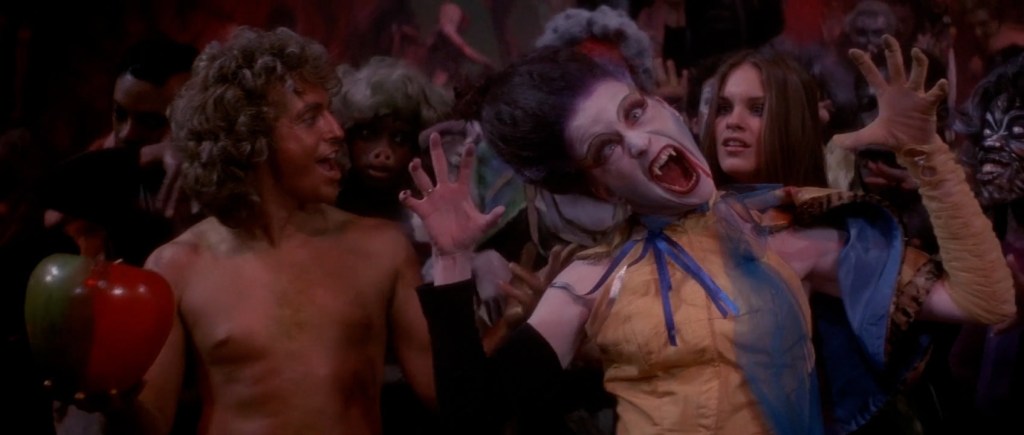
7. The Apple (1980)
Rock and roll is excessive. Opera is excessive. So there’s no surprise that rock operas would be the most excessive of them all. But somehow, The Apple is even more excessive than its peers, making Jesus Christ Superstar and Tommy look like quiet character dramas. Written and directed by Menahem Golum, The Apple uses the biblical creation myth to make a statement about, well, almost everything: consumerism, big government, propaganda, artistic authenticity, the nature of evil, and so on. Even if you didn’t want to engage with any of those themes, the movie is still exhausting, as Golum fills the frame with sparkling costumes, lashings of makeup, and big performances. Even the camera won’t hold still, turning to canted angles and cutting frequently.
And yet, despite all of this excess, The Apple remains a strangely conservative movie. It follows a sexist reading of the Genesis story, which presents Catherine Mary Stewart’s Eve analog Bibi as materialistic and shallow, easily seduced by the Satanic Mr. Boogalow (Vladek Sheybal), while George Gilmour’s Adam analog Alfie retains his integrity. Along the way, the movie suggests we should mistrust the government and the temptations of gender benders, running away until we can be raptured by God (or at least Joss Ackland’s mystical Mr. Topps). In fact, this mix of excessive exterior around a conservative core is perhaps the defining feature of the Cannon style. The Apple may not be Cannon’s best movie, but it is perhaps its most Cannon movie.
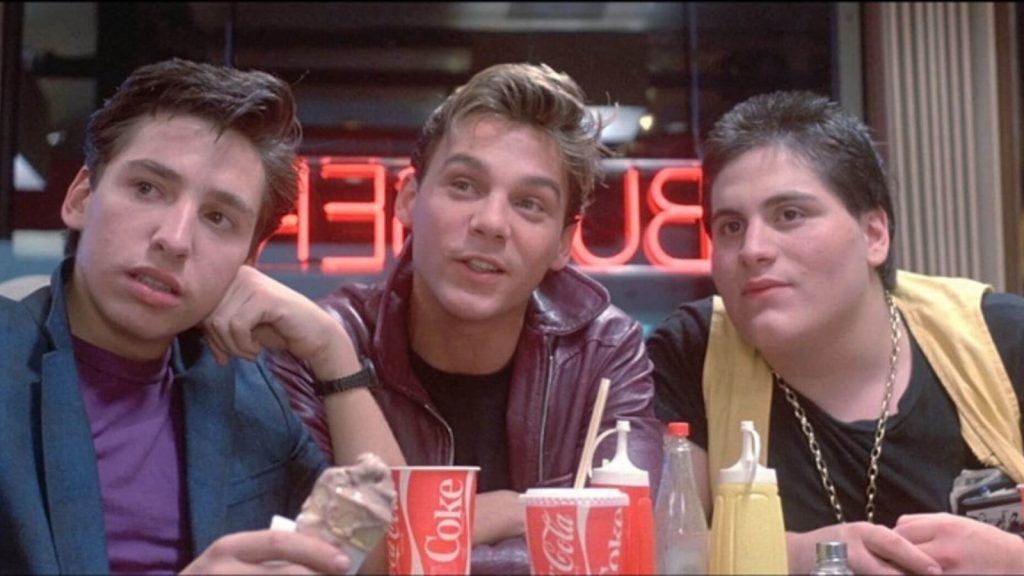
6. The Last American Virgin (1982)
The success of the Israeli coming-of-age movie Lemon Popsicle helped put producers Golan and Globus in the position to buy Cannon films and establish themselves as kings of 80s cinema, so it’s no surprise that they would want to revisit it when their reach in the U.S. expanded. The Last American Virgin more or less follows the same storyline as Lemon Popsicle, even as it excises the military plot and some of the goofier comedy. It also moves the story from the 1950s to the early 80s, allowing director Boaz Davidson (who also did Lemon Popsicle) to fill the soundtrack with pop hits.
Like most teen sex comedies of the era, The Last American Virgin has more than a few regrettable moments, as it focuses on a trio of horny teen boys (played by Lawrence Monoson, Steve Antin, and Joe Rubbo) in their quest for sex. But it does find some surprisingly tender moments, especially involving Diane Franklin’s Karen, who becomes the center of a rivalry between Monoson’s Gary and Antin’s Rick. Perhaps owing to Boaz’s lack of familiarity with American teens or just an inability to let get over his basest impulses, The Last American Virgin is filled with moments unlike those you’d see in any other movie in the genre. The abortion plot in the third act feels fresh and humane (until the camera leers at Franklin’s naked body, at least), while a penis-measuring contest in the first act is refreshingly devoid of the period’s constant homophobia (Monoson and Antin have since come out, which may have something to do with the scene’s lack of guile). It’s hard to call The Last American Virgin a good movie, but it remains an interesting mess and a key indicator of the Cannon style.

5. Cobra (1986)
For all of their wild content, Cannon movies tended to be politically conservative. Many of their best-known movies were about winning the Vietnam War, defeating evil communists, and restoring law and order against drugged-out hippies and also people who aren’t white. And no movie embodied this tendency better than Cobra. After stopping a gunman holding hostages in a supermarket by going in alone and blasting away, a by-the-book detective (played by Andrew Robinson, co-star of the original rogue cop movie Dirty Harry) angrily reminds Sylvester Stallone’s Marion Cobretti that even criminals have rights. “Where are his rights!?” demands Cobretti, revealing the dead body of a little boy.
It would be tempting to be offended by such a crass scene, but Cobra goes so far over the top that only the most devoted Infomaxx watcher would take it seriously. Directed by George P. Cosmatos (father of Mandy director Panos Cosmatos), Cobra seems to undercut Stallone’s insistence on his character’s unflappable cool and moral certitude. Cosmatos keeps in scenes of Cobretti eating pizza by donning leather gloves and cutting up slices with scissors, of Cobretti hassling Latino men just because they’re near him, and constantly chewing on a matchstick. It would take a wild set of villains to match Stallone’s strange energy, and Cobra delivers, pitting him against a mob of motiveless murders led by the “Night Slasher” (Brian Thompson). Cobra is the perfect slice of Cannon sleaze, even if weirdos want to see it as a reflection of our lived reality.
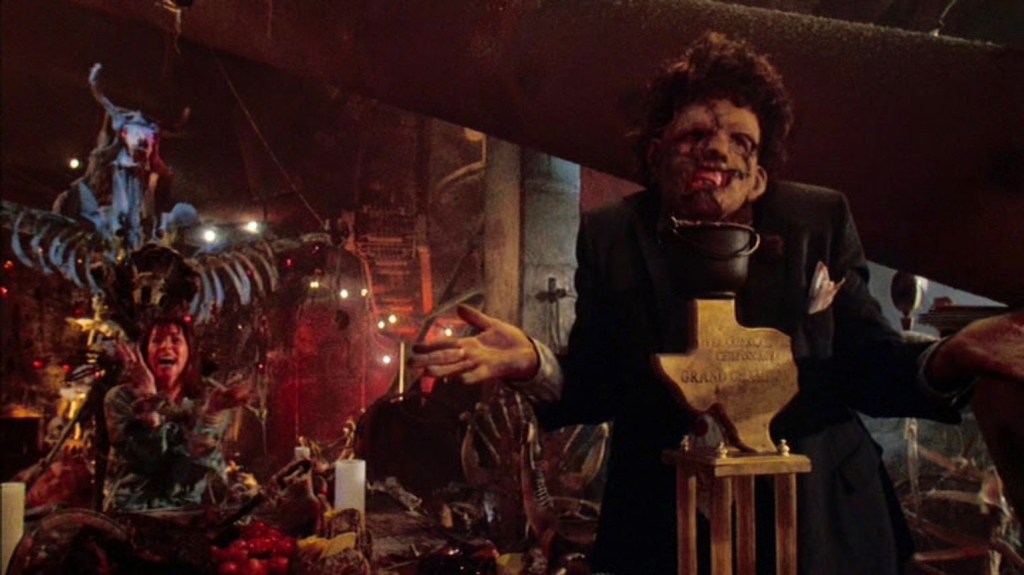
4. The Texas Chainsaw Massacre Part 2 (1986)
Tobe Hooper didn’t want to make another Texas Chainsaw Massacre. The first one may have become a cultural sensation, but he didn’t want to repeat himself. Worse, people failed to see the humor in the first movie, which he considered to be a dark comedy. But when the first movies in his three-picture deal with Cannon flopped, Hooper bit the bullet and brought back the buzz. But this time, he was determined to make sure that everyone got the joke.
Even now, it’s hard to say if he was successful. Sure, The Texas Chainsaw Massacre Part 2 has obvious jokes, like Dennis Hopper dual-wielding chainsaws as Lt. Lefty Enright and Jim Seidow’s ranting Cook. But it’s all so heightened and loud and unnerving that the humor feels somehow even more horrifying than the original. Everything from the production design, which transforms the Sawyer’s farmhouse into a skeleton-strewn underground labyrinth, to in-your-face performances from Bill Mosely as Leatherface’s brother Chop-Top and Caroline Williams as mad final girl Stretch. I don’t know if the end result is funny, exactly. But it is certainly in-your-face more than any other movie.
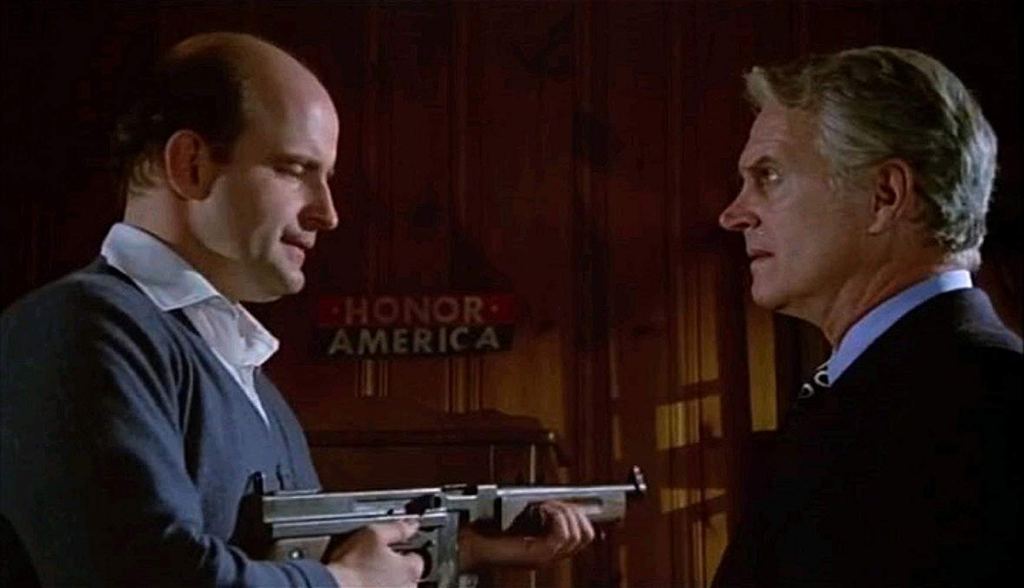
3. Joe (1970)
“Why work when you can screw, make babies, and get paid for it.” That’s actually the second line spoken by Peter Boyle, playing the eponymous man in Joe. The first is a racial slur, one he repeats throughout the film. Boyle may come in 1/4th of the way through Joe, but director John G. Alvidsen gives him the floor, letting him spout his hateful monologue about anyone who isn’t a white conservative more or less uninterrupted. If you only know Cannon’s 80s output, then you might worry that Joe endorses its titular character. But instead, writer Norman Wexler offers an insightful story about a conservative bond that crosses class lines.
Dennis Patrick stars as Bill Compton, a wealthy father who, in a moment of passion, murders the hippie boyfriend of his teenage daughter (Susan Sarandon, in her first screen role). Wracked with guilt, Compton visits a corner bar and overhears Joe giving the aforementioned monologue. Joe’s hatred of the counter-culture makes Compton feel like a hero, and the two form a seemingly unlikely friendship, demonstrating once again that the poor will collaborate with the rich if given a mutual enemy. Boyle’s frightening performance and Sheldon Adelson’s gritty direction made Joe a hit in 1970, putting Cannon on the map before Golan and Globus took over.
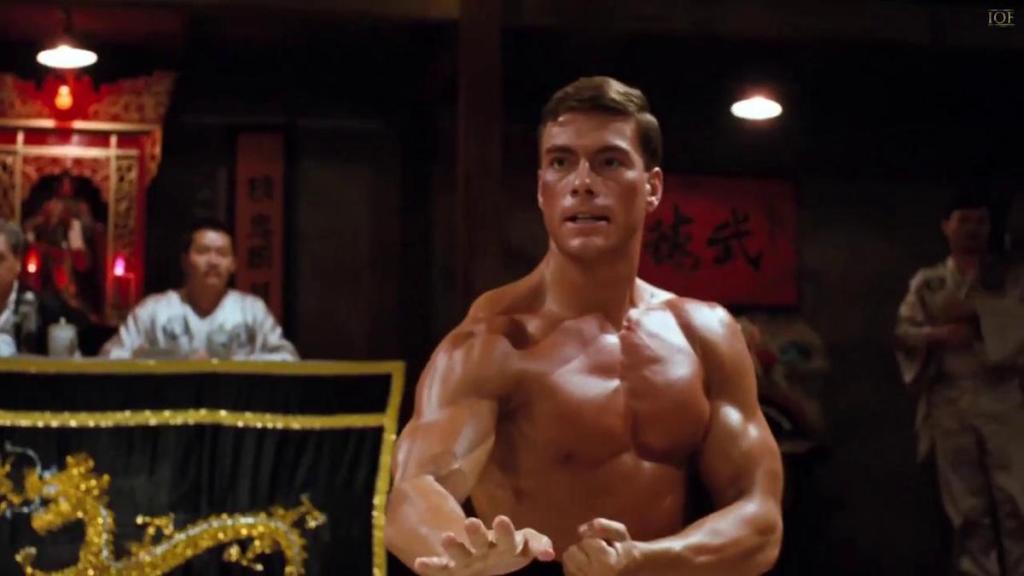
2. Bloodsport (1988)
Bloodsport rules. Sure, you could say more about the movie, but saying more would be against the heart of Bloodsport. Based on the (questionable) true story of Frank Dux, Bloodsport proved that a martial arts tournament featuring outrageous fighters of different styles would work, long before the Street Fighter and Mortal Kombat movies made us think otherwise. It takes Jean-Claude Van Damme at his most fit and charismatic and makes him fight a bunch of guys until he squares off against a baddie with giant pecs. What more do you even want to know?
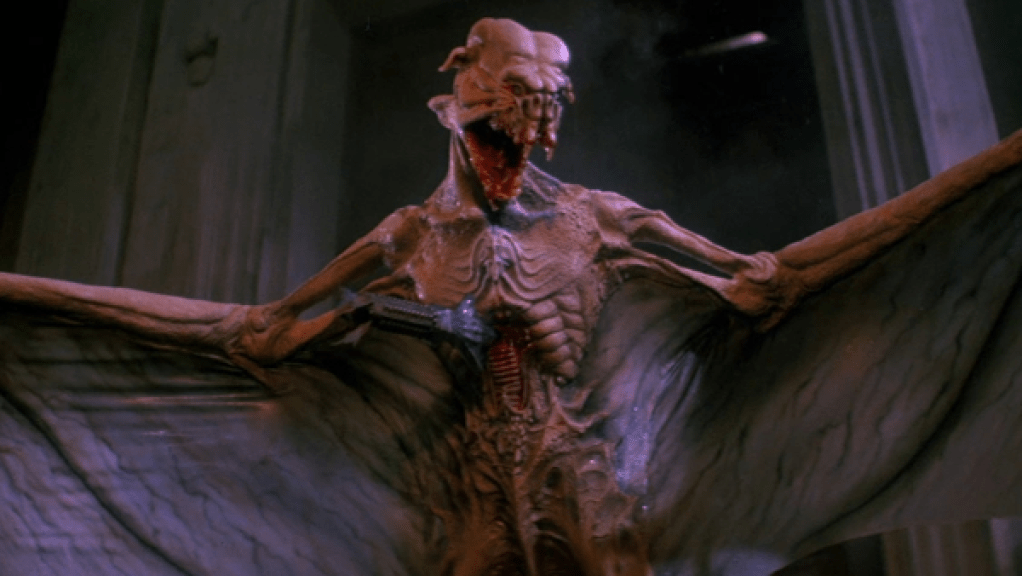
1. Lifeforce (1985)
If Stallone was Cannon’s play for a big-budget star, then Tobe Hooper was their attempt at securing a hit director. On the surface, Hooper seemed like an odd choice for the gritty company to hire for mainstream attention. While his Stephen King adaptation Salem’s Lot was a television hit in 1979, and Poltergeist topped the box office in 1982, Hooper was most comfortable making unpalatable and nasty movies, like The Texas Chainsaw Massacre, Eaten Alive, and The Funhouse. And yet, Golan and Globus saw Hooper as their path to Hollywood success and signed him to a three-picture deal.
For the first of this trilogy, Hooper tried to meet Cannon’s expectations with the massive sci-fi epic, Lifeforce. Working off a screenplay by Alien co-creator Dan O’Bannon and Don Jakoby, and adapting the Colin Wilson novel The Space Vampires, Lifeforce tells a surreal story about an energy-sucking humanoid (a never-not-nude Mathilda May) bringing about the apocalypse after arriving to Earth via a space ship captained by Colonel Tom Carlsen (Steve Railsback). At turns bonkers, beautiful, and genuinely brilliant, Lifeforce may have failed to bring Cannon box office success (grossing 11.6 million on a 25 million budget), but it showed what the company’s bizarre style could do in the right weirdo’s hands.
